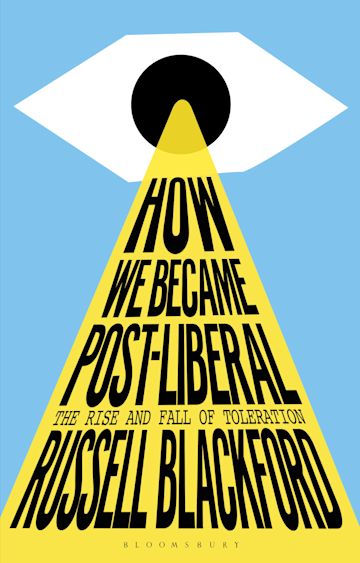 Blackford’s knowledge is wide-reaching and he constructs his arguments carefully, with evidence that encompasses history, law, and philosophy, making it clear that the first step in combating intolerance is to understand how and why it arises.
Blackford’s knowledge is wide-reaching and he constructs his arguments carefully, with evidence that encompasses history, law, and philosophy, making it clear that the first step in combating intolerance is to understand how and why it arises.
Tag: philosophy
A review of Axiomatic by Maria Tumarkin
 Axiomatic is a gorgeous, difficult and extraordinary book that demands deep engagement from the reader. Tumarkin’s humility, dark humour, scholarship, and above all, the empathy with which she connects her own experience to that of her subjects and ultimately to that of the reader creates a tapestry that is moving, powerful, and important. This is a book that seeps under the skin, changing perception. It’s vital reading.
Axiomatic is a gorgeous, difficult and extraordinary book that demands deep engagement from the reader. Tumarkin’s humility, dark humour, scholarship, and above all, the empathy with which she connects her own experience to that of her subjects and ultimately to that of the reader creates a tapestry that is moving, powerful, and important. This is a book that seeps under the skin, changing perception. It’s vital reading.
A review of The Age of Magic by Ben Okri
 However, if you let go of preconceptions about what a novel should be and how it’s meant to function, and read the work, instead, as a literary exploration of the unseen, beyond the world of logic and progression, then the work becomes much more powerful, yielding a transcendence that moves beyond the flow of ordered progression. The work moves in pulses; in moments of magic that become “elixirs, life renewed in the laboratory of Arcadia” or humanity’s highest self.
However, if you let go of preconceptions about what a novel should be and how it’s meant to function, and read the work, instead, as a literary exploration of the unseen, beyond the world of logic and progression, then the work becomes much more powerful, yielding a transcendence that moves beyond the flow of ordered progression. The work moves in pulses; in moments of magic that become “elixirs, life renewed in the laboratory of Arcadia” or humanity’s highest self.
A review of The God Argument by A C Grayling
 The book is lucid, easy-to-read, and illuminating, even for those who already define themselves as secular humanists. However, at times, despite the warmth and underlying sense of humour that pervades the book, there’s a kind of knowing superiority that can be a little hard to give into wholeheartedly.
The book is lucid, easy-to-read, and illuminating, even for those who already define themselves as secular humanists. However, at times, despite the warmth and underlying sense of humour that pervades the book, there’s a kind of knowing superiority that can be a little hard to give into wholeheartedly.
A review of Now What: A Philosophy of Freedom and Equality by Michael Lydon
 The book is entirely empirical, encouraging readers to conduct regular and direct (that is, immediately experiential) experiments in order to prove the tenets, and then to live by its dictates. Because the book is almost childlike in its optimism, inclusiveness and warmth, it functions as a kind of self-help guide to living an authentic and happy life
The book is entirely empirical, encouraging readers to conduct regular and direct (that is, immediately experiential) experiments in order to prove the tenets, and then to live by its dictates. Because the book is almost childlike in its optimism, inclusiveness and warmth, it functions as a kind of self-help guide to living an authentic and happy life
A review of Real Writing: Word Models of the Modern World by Michael Lydon
 Throughout Real Writing Michael Lydon creates a solid thesis for the power of realism. Though each of these writers are products of their own times, with settings and themes determined by the key concerns of the day, there is a timelessness to their themes and characters.
Throughout Real Writing Michael Lydon creates a solid thesis for the power of realism. Though each of these writers are products of their own times, with settings and themes determined by the key concerns of the day, there is a timelessness to their themes and characters.
A review of The Moral Lives of Animals by Dale Peterson
 Dale Peterson takes the unusual angle of examining how evolution has shaped animal behavior in the area of cooperation. He uses research in cell biology to talk about the limbic brain, emotional responses to things like tickling, fear, grief and love
Dale Peterson takes the unusual angle of examining how evolution has shaped animal behavior in the area of cooperation. He uses research in cell biology to talk about the limbic brain, emotional responses to things like tickling, fear, grief and love
A review of The God Delusion by Richard Dawkins
Dawkins is such a clear thinking scientist that he manages, through analogy, metaphor, logical argument, and example to make his points with the kind of clarity that religious theologians rarely reach. This book is a joy to read, and never gets dry or terse. Instead Dawkins’ good humour and sense of humanistic pleasure in science and discovery are constantly evident.